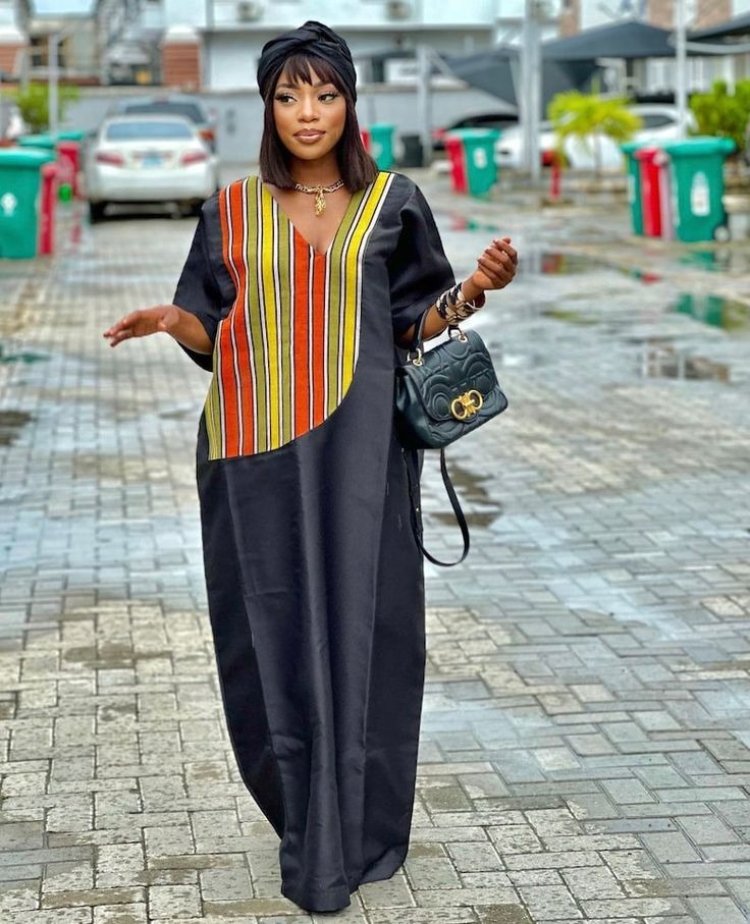Exploring African Heritage: The Beauty of Caftan Dresses
Explore the allure of caftan dresses, their deep roots in African heritage, and how they continue to be a symbol of grace and tradition in modern fashion.
Share this Post to earn Money ( Upto ₹100 per 1000 Views )

Fashion is a powerful medium through which culture and history are celebrated. Among the many traditional garments that have stood the test of time, caftan dresses hold a special place in African fashion. These flowing, elegant garments are not only beautiful but also rich in cultural significance. In this blog, we will explore the allure of caftan dresses, their deep roots in African heritage, and how they continue to be a symbol of grace and tradition in modern fashion.
The Origins of Caftan Dresses in African Culture
Caftan dresses have been a staple in African dresses for centuries. Originating in North Africa, particularly in regions such as Morocco and Egypt, these dresses have been worn by both men and women. Traditionally, caftans were made from luxurious fabrics like silk or velvet and were often embellished with intricate embroidery, beads, or sequins. They were typically worn during special occasions and were considered a symbol of wealth and status.
The design of caftan dresses has always been unique, with their loose, flowing silhouette that allows for comfort and ease of movement. This aspect made them popular across different African cultures, where they were adapted into various styles, each reflecting the distinct heritage of the region. As African dresses evolved, the caftan became a versatile garment, worn not just for its beauty but also for its practicality in the hot climates of the continent.
The Significance of Caftan Dresses in African Heritage
Caftan dresses are more than just a fashion statement; they are a reflection of African heritage. These African dresses carry with them stories of tradition, craftsmanship, and cultural identity. Each region in Africa has its unique take on the caftan, with variations in fabric, color, and embellishment that reflect the local customs and history.
In many African cultures, the caftan is worn during significant life events such as weddings, religious ceremonies, and festivals. The elaborate designs and rich materials used in these dresses signify the importance of the occasion. For example, in Morocco, the traditional wedding dress is often a caftan, intricately embroidered and adorned with jewels, symbolizing the bride's transition into a new chapter of life.
African dresses like the caftan also play a role in preserving cultural heritage. As the world becomes increasingly globalized, traditional garments like the caftan serve as a reminder of the rich history and diverse cultures of Africa. They connect the younger generations with their roots, ensuring that these traditions are passed down and continue to thrive.
The Modern Appeal of African Caftan Dresses
In recent years, caftan dresses have gained popularity beyond the African continent, becoming a favorite among fashion enthusiasts worldwide. Designers have embraced the beauty of these African dresses, incorporating modern elements while staying true to their traditional roots. This fusion of old and new has resulted in stunning creations that appeal to a global audience.
The versatility of caftan dresses makes them a perfect choice for various occasions. Whether it's a beach outing, a formal event, or a casual day out, these African dresses offer comfort without compromising on style. Their flowing design flatters all body types, making them a wardrobe staple for many.
Moreover, the rise of sustainable fashion has brought attention to the craftsmanship involved in creating traditional African dresses like the caftan. Many designers now work with local artisans, using traditional techniques and materials to create authentic pieces that honor African heritage.
Conclusion
Caftan dresses are a true representation of the beauty and richness of African dresses. They embody the essence of African culture, with each piece telling a story of tradition, craftsmanship, and identity. As these dresses continue to evolve, they remain a symbol of elegance and grace, connecting the past with the present. Embracing caftan dresses is not just about fashion; it's about celebrating African heritage and ensuring that these beautiful traditions continue to inspire future generations.













